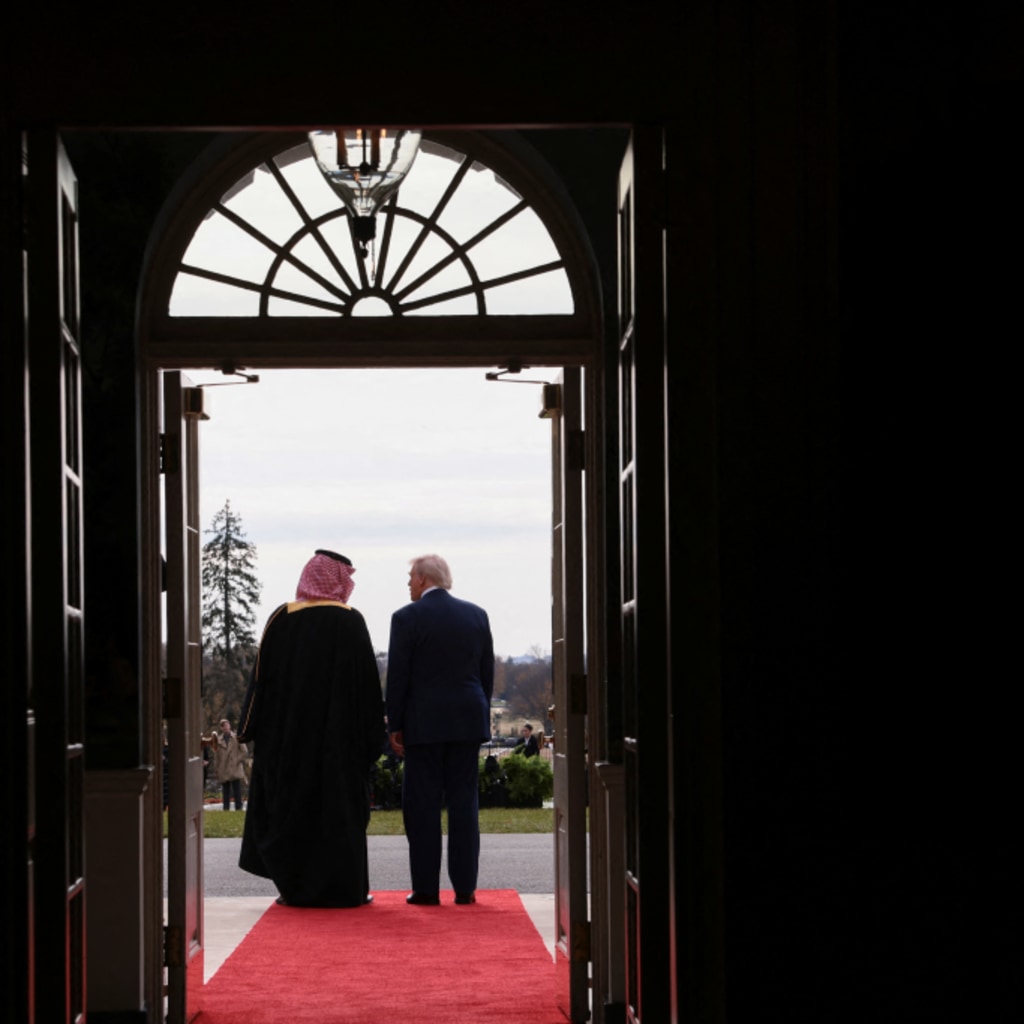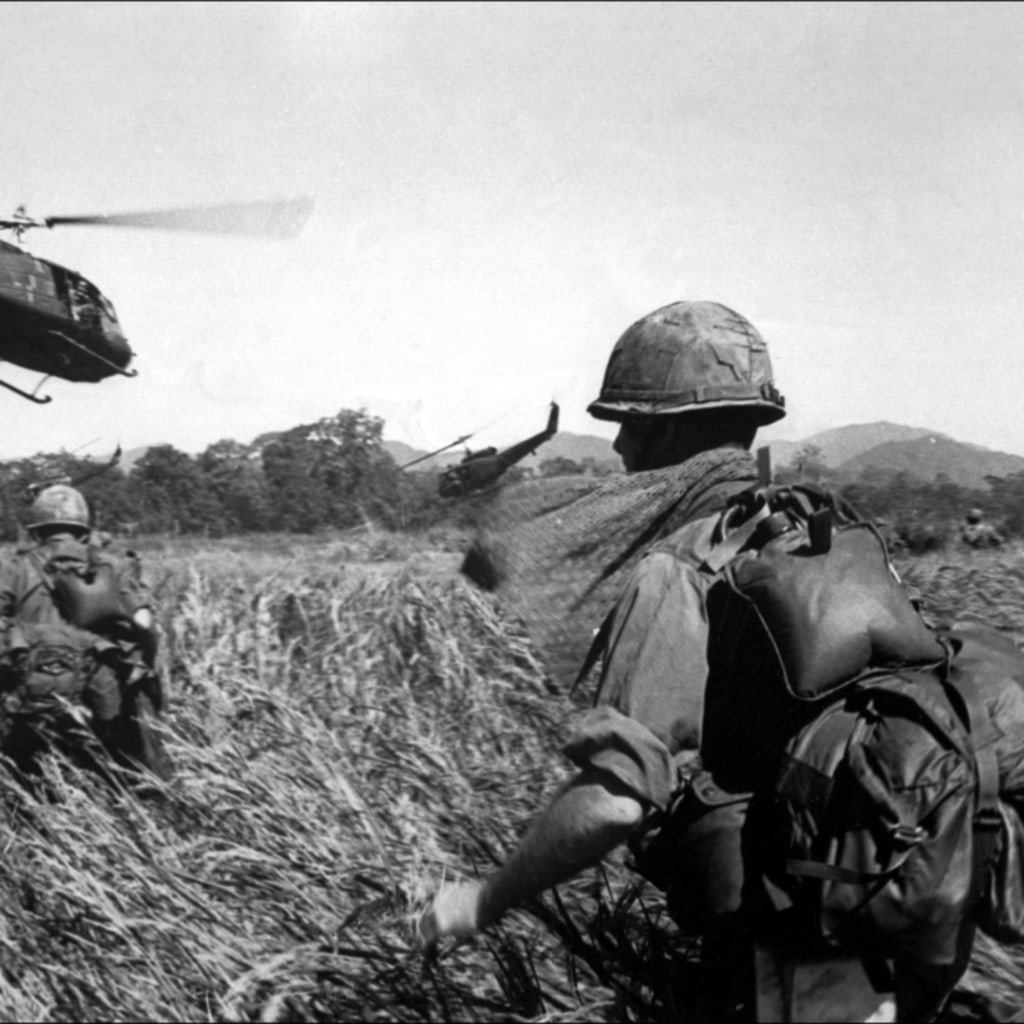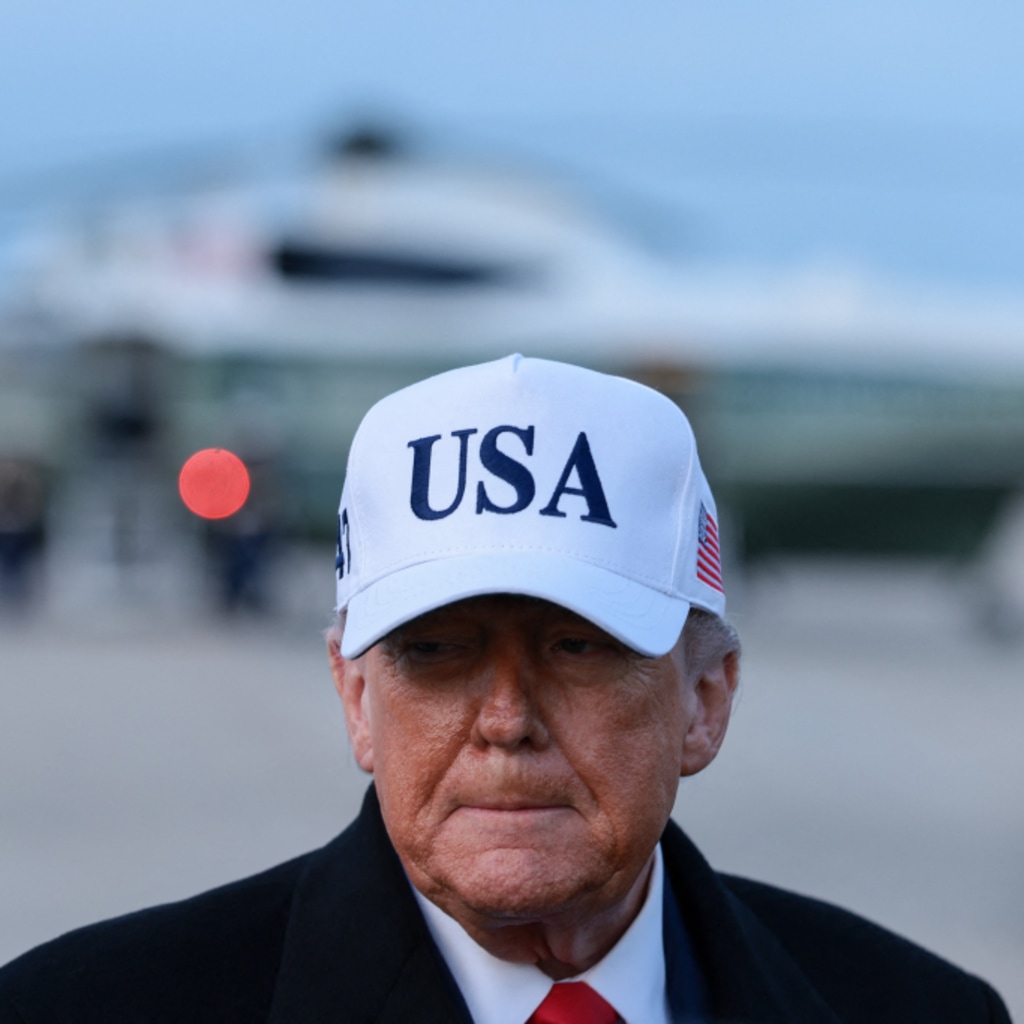A New U.S. Grand Strategy: The Case for Liberal Internationalism, With G. John Ikenberry
G. John Ikenberry, the Albert G. Milbank Professor of politics and international affairs at Princeton University, sits down with James M. Lindsay to discuss whether liberal internationalism and U.S. global leadership are fit for purpose in the twenty-first century. This episode is the second in a special TPI series on U.S. grand strategy.
Published
Host
- James M. LindsayMary and David Boies Distinguished Senior Fellow in U.S. Foreign Policy
Guest
- G. John IkenberryAlbert G. Milbank Professor of Politics and International Affairs, Princeton University
Associate Podcast Producer
- Ester FangAssociate Podcast Producer
Editorial Director and Producer
- Gabrielle SierraDirector, Podcasting
Show Notes
Mentioned on the Episode
Arthur A. Stein, “The Hegemon’s Dilemma: Great Britain, the United States, and the International Economic Order,” International Organization
Transcript
LINDSAY:
Welcome to The President’s Inbox, a CFR podcast about the foreign policy challenges facing the United States. I’m Jim Lindsay, director of Studies at the Council on Foreign Relations. This week’s topic is the case for liberal internationalism.
With me to discuss whether liberal internationalism is fit for purpose in the twenty-first century is John Ikenberry. John is the Albert G. Milbank Professor of politics and international affairs at Princeton University. He’s also co-director of Princeton Center for International Security Studies. John is the author of eight books, the most recent of which is, A World Safe for Democracy: Liberal Internationalism and the Crises of Global Order. This episode is the second in my ongoing series on U.S. grand strategy for the twenty-first century. John, thank you for joining me on The President’s Inbox.
IKENBERRY:
Great to be here, Jim. Thank you.
LINDSAY:
As I mentioned in the introduction, this is part of a series of episodes I’m taping about American grand strategy, and I wonder how would you define the term grand strategy?
IKENBERRY:
Well, the term really emerged during World War I in Great Britain when strategic thinkers were beginning to assess the lessons of the Great War, people like Basil Liddell Hart and others. Sometimes they used the term higher strategy, but they were making the point that was increasingly obvious in their day that in this modern era, great powers to navigate times of war and peace need to take advantage of their full repertoire of instrumentalities of national power: economic, military, of course, political, ideological, technological, organizational. And so the term allows us to look at those full comprehensive assets that states might have or at least can develop to shape their environment. Barry Posen, one of my favorite definitions of grand strategy, uses the phrase that it’s a theory that a state has about how to cause security for itself. How does it do things to make it more secure?
Grand strategy allows you through that kind of conceptual language to think about the long-term, how to concert your resources, how to invest in the future. It gets you to ask questions like, “What kind of world do you want to live in twenty years? What kind of environment in the world would you like to have as you go about your political life, either individual or as a country?” Woodrow Wilson famously said that American foreign policy during and after World War I would be put at the service of making the world safe for democracy. He said we are playing for a hundred years, famously, that we’re not simply trying to cash in whatever power we have to get something, but we’re trying to invest in the future. I think the term is useful for that purpose, and I think the proof is in the pudding. Does it allow us to see, does it illuminate tendencies and patterns and great power, strategy and activity across long periods of time? And I think the answer, at least in the case of the United States, and I think in some other cases the answer is yes.
LINDSAY:
So John, you were described as a leading, if not the chief proponent of liberal internationalism. First, I have to ask you, is that a correct assessment of how you approach the world as a proponent of liberal internationalism?
IKENBERRY:
Yes, I think that is true. I don’t wear my theories as identity labels. Realism, lots of other theories are useful, but I do think it’s been an important way for me to think about and make arguments about the world.
LINDSAY:
So let me ask you, how do you define liberal internationalism? ‘Cause I don’t think it is a term that rolls off the tongue of most people in ordinary conversation.
IKENBERRY:
Yeah, and in fact, for that very reason I wrote this book, A World Safe for Democracy, trying to reconstruct the ideas and the agendas, the projects of liberal internationalism across 250 years. Indeed, the book tries to argue that there are very deep roots to liberal internationalism. We sometimes trace it to Woodrow Wilson. But 100 years before Wilson and 100 years after Wilson we see a tradition of thinking. It’s had successes and failures. It’s had excesses and failures, but as I’m sure we’ll talk about today, it also, in my view, remains a vital way of thinking about how to conduct grand strategy, certainly in the United States. Just a few other things about liberal internationalism, I’ve defined it as a vision of international order marked by openness, loosely rule-based relations, and progressive social purposes.
If you want to give it another kind of tag, the cooperative organization of the international order led by a coalition of liberal democracies. It is an order building project in all its different facets, and in a kind of general way across the centuries, you can see it as an effort to create a pathway into the modern world, a pathway between two of the great forces that have shaped and disrupted world politics for a millennia, namely raw balance of power and empire.
So a third way between anarchy and hierarchy, creating a space more level, more open, more rule-based for countries that want to be in it to do things. It has a set of convictions that are seen across the different generations and historical eras. That openness and trade is good if properly managed, that international organizations and institutional arrangements between countries can facilitate cooperation and can mute power asymmetries and foster various forms of cooperation, never fully, but it can play an important role.
Thirdly, that democracies have an unusual capacity to cooperate, and it’s because of their interests, it’s because of their values, it’s because of their ability to connect institutionally between them, that they have unusual incentives and capacities to build a third way international relations. Then in some ways, most importantly, interdependence, economic, military, environmental. Under conditions of rising interdependence, the costs of making international binding commitments is less liberal internationalist think than the gains that are accrued by coordinating your policies across international space.
LINDSAY:
So if you give up something, you get more in return.
IKENBERRY:
Yeah. It’s an argument, in my rendering, liberal internationalism is not idealism. Liberals are realists who have been mugged by reality. They see that you can’t go it alone, that there’s power in numbers, that all states are not created equal. Some are more willing to work with you and share your burdens and to help you go where you want go than others. And finally, there’s a historical record, I think, that suggests that liberal internationalism has been incredibly productive in shaping and reshaping international space, particularly among advanced industrial democracies. To create things that we want to create; physical security, wealth creation, and even, although, it’s uneven as a outcome, glimmerings of social justice.
LINDSAY:
Okay. John, I want to pick up on that point because I think a lot of people who write in or about international relations, international security would say, “Yes, the liberal international order crafted by the United States out of the ashes of World War II was remarkably successful in promoting cooperation, economic growth and even limiting or tamping down conflict.” But as you know, there are a lot of people who are arguing that that liberal international order is essentially passed its sell-by date, that it is in decline because U.S. power and the power of the West more generally is being eclipsed by the rise of the so-called rest, and particularly by the rise of China. My sense is you disagree with that assessment, so what are the pessimists getting wrong?
IKENBERRY:
Yes. Well, I think there is a big debate here, and I don’t totally disagree that we are in a period where the liberal international project is under siege at home and abroad, and there are deep sources and there are more proximate sources. The deep sources, as you mentioned, Jim, the power transition, the West and the rest, I don’t think it’s as radical as some people would argue. But it’s big, and it’s unfolding and having multiple effects at all different levels of the global system.
New problems that even if the liberal order were fully coherent and intact and running on all the cylinders that had in the past, the new problems of the global and even planetary era of global warming and pandemics, artificial intelligence, all the things that we think about as new, a vanguard, developments part out of the natural world, part out of the man-made world are all putting new demands on cooperation structures. Then perhaps most worrisome is the problems of liberal democracy itself and self-inflicted wounds, if you will.
I argue that the current kind of malaise of liberal internationalism in the United States and around the world is partly America’s own failures and missteps. The U.S. is in some sense the country most associated with this broad and widely-shared project, but it really has been under American auspices. So the U.S. does gain the credit, but also the blame in many ways. The Iraq War undermined part of the internationalist coalition in the United States. That was an important hit. The 2008 financial crisis exposed the thinness of the liberal international economic order, the failure to lift all boats, and in some ways, the problems of integrating China, the liberal bet that China could be socialized into a kind of liberal framework. Then finally, Trump, who is only the most recent populist nationalist critic of internationalism generally and liberal internationalism, specifically.
But as you say, I do think there’s still life left in this project. In some ways you think of the two, there’s so many different ways to cut into this. But just broadly speaking, two of the greatest crisis or flashpoints in the world today, Ukraine and Taiwan, one real, one latent, if you will, they have different legal statuses, but they are democracies that want to get further into, not further away from what we might call the liberal international order. They are people who don’t want to be roped into the orbit of powerful illiberal states that claim them in one way or another. They put, in some cases, certainly in Ukraine, their lives on the line to be closer rather than further away from the EU, from the Western system and the more broadly-defined liberal international system. NATO has expanded.
There is a under, again, I think Biden leadership gets some credit for this. There’s a creative moment in diplomacy in East Asia with Japan and Korea, with the Quad, with other factors. So at the grand strategic level, there are new rivals that are seeking to take down and dethrone the U.S., the U.S. hegemony and the liberal international order. We’ve been here before. That has been the fate of liberal internationalism and liberal democracies for the last 100 years. There has never been an easy moment of sailing or very few moments, let’s put it that way. So the Ikenberry law is that the worst things get, the longer the history that you have to look at to see the arc that might allow you to see a path forward to renewal, rebuilding reinvention, re-coalition building of this liberal order. It won’t be global, but its heyday, of course, has never been global. It’s been a subset of a larger system. So those are some opening thoughts, Jim, on why I’m not willing to write the obituary yet.
LINDSAY:
Okay. John, I want to get to the question of the challenge being posed by the so-called axis of the aggrieved, China, Russia, Iran, North Korea. But before we dive into that, I want to draw you out a little bit more on the sustainability of the liberal international order. I have one question which is, to what extent does the liberal international order depend upon American power underwriting it? To what extent do you think we’ve created a system that has a momentum of its own, that others will want to propel it forward?
IKENBERRY:
That’s a great question, and I have spent a lot of blood, sweat and tears thinking about that. In some ways, the liberal order after World War II was very much tied to the United States, the U.S. dollar, the U.S. economy. It was NATO and the alliances more than it was the U.N. Security Council that became, by default. I’m not of the view that the U.S. exited World War II with an agenda for world domination. It was an empire by invitation in important ways. The U.S. was, in many ways, very reluctant to take on a direct role. But hegemony, what I call liberal hegemony did emerge. Is it necessary? I’ve argued in Liberal Leviathan ten years ago, twelve years ago, no, that there is a post-hegemonic liberal internationalism of one kind or another. I at least tried to imagine that in that book. I backed off a little bit from that.
What I’ve been arguing and what I think I argue in A World Safe for Democracy is that a liberal order, open rule-based, loosely rule-based, progressively oriented is not a value-neutral order, and it’s not an order that can spin out of individual states, a kind of Hayekian equilibrium or a spontaneous order. It requires bargains, it requires power. It requires what I would call a power formation, a power block, a group, if not one country, a group of countries that can put their shoulder to the effort of building rules and institutions, encouraging compliance, generating public goods, making the case ideologically, assisting states that are wobbly and making transitions one way or the other. There’s no question that study of international relations makes this very clear from all different points of view that power is essential in one way or another to create order and even rule-based order. My view is that what we’re stumbling towards is a more coalitional or consortium-based leadership. You look at the G7 today, there’s talk of a G10 or a D9.
LINDSAY:
D standing for democracy.
IKENBERRY:
Yes, there are lots of different ideas out there, and so I do think that it helps if the U.S. sees it in its interest to play this leadership role. Certainly, the most important features there are security partnership, across Eurasia, across Europe and East Asia and some form of cooperative trade and financial institutional multilateralism that creates a win-win setting for economic growth and development across large spaces of this, at least the OECD world and more generally. So I do think that if we were in a position where we had a president or an American government that wanted to pull the plug on its historic role here, there isn’t an easy fallback position to keep an open, loosely rule-based, progressively-oriented system alive.
LINDSAY:
Well, let me draw you out on that point, John, ‘cause I think it’s important to note that as much as American power may be essential to underpinning the liberal international order, there also is the matter of the American will to cooperate with that order to support it and sustain it. And so you alluded to a few moments ago, there’s a lot of evidence that at least segments of the American public have soured on America’s great handiwork, believing that liberal international order is simply a way in which others get the free ride off the United States costing Americans blood and treasure, that the bargain isn’t in fact net positive.
IKENBERRY:
Absolutely. There’s a debate out there, and those who want to see a world that is more cooperative, more organized around a critical mass of liberal democracies who want to take the world in the direction we want to take it, if that group is not there, then it won’t happen. I think you have to step up and defend it. I think you have to be clear-eyed about its failures. There’s no question about that. Learn your lessons. I do argue in my most recent book that one of the aspects of the Liberal International Project is that there is a learning dynamic. We don’t simply repeat ourselves over and over again, but there is a chance to not just sing our praises, what we’ve done in the past, but find ways to reinvent it so that it delivers for real people. There’s no question that is the challenge today.
One just footnote there, and that is that we’ve always known this. This is not a surprise that there’s... Decades ago an international relations scholar wrote an article called “The Hegemon’s Dilemma,” which argued that no great power that seeks to sustain itself and remain a regime in power can simply provide public goods and sacrifice domestic interest. It always has to be a balancing act of enlightened self-interest where you show that you can create an environment, public goods that bring other countries into your orbit, that make your power more legitimate, that creates circumstances for platforms for mutual gain, and that make your lives better off at home, but it’s always a balancing act. You need to make the case and organize the system so that there’s a flow of gains in all directions, including domestically, so that you can remain a regime committed to internationalism
LINDSAY:
John, to develop that point, even if you have American power to underwrite the liberal international order, even if you can solve the hegemon’s dilemma and persuade the public that the net benefits to the United States significantly exceed the cost of underwriting that liberal order. There’s also the issue of trying to get followers. Leadership always implies followers. I, like you, get to travel a lot, talk to a lot of people overseas. There’s a lot of criticism of the United States, a lot of disappointment in the United States. Many books and articles have been written about the importance of American soft power, American values, inspiring countries and that being very attractive. But in recent years, there are a lot of things that raise questions about the attractiveness of America. George Floyd, America’s support currently for Gaza is creating a lot of criticism around the world, January 6th. So how do you think about the ability of the United States to lead when there are a lot of people criticizing the United States for being a short-sighted, self-interested power?
IKENBERRY:
Yes, you’re right that that is a critique. If we just step back and look at that critique, what they’re asking for is not a world without America. It’s a world where the United States is at the center of a liberal international order, that it is living up to its principles, that it is acting in a way that allows for gains across the system, and indeed, that’s the logic. That’s the secret sauce of American power over the last 100 years. That it has affiliated itself and embedded itself in a set of partnerships and institutions, much of which has been authored and created by Washington that makes it a more user-friendly, great power. Countries on balance have made decisions given that lattice work of global connections, networks and institutions to bandwagon with the United States rather than balance against it.
Because in the end, it is a world that no one state can not only lead, but it’s also a world that no one state can thrive in if it doesn’t have allies and partners, and that is the legacy of liberal internationalism. If I were to boil it down, it’s that the U.S. has an ability to work with others and to tie that collaboration to its fundamental regime principles. That’s very different than anything Russia or China has to offer. That is in the DNA of the federal Madisonian American vision, and it’s there. It can be ignored, it can be overturned. But I do think that what you said is correct, that others want the U.S. to step up, to make good on its own vision of a third-way international order between anarchy and hierarchy, and I don’t think the U.S. is incapable of doing that. It’s something that is so deeply in America’s interest in the long term that it would really, really surprise me if that grand strategy got hijacked by a radical minority that wanted to take it all down.
LINDSAY:
So John, I want to return to the issue of the axis of the aggrieved. It’s very clear that countries like China, Russia, Iran want to construct a different global order, one that curtails American in Western power. That’s an agenda that seems to resonate with at least some countries in the so-called Global South. Do you see that project succeeding?
IKENBERRY:
I don’t see it succeeding as in the full sense that Moscow and Beijing might want it to. I do think we are evolving as a global system towards more alignments and groupings. I think if you call the U.S. and its allies the Global West or the Global North. You have this what you referred to as the axis of resistance, we’ll call it the Global East, China most importantly. Then the Global South, which is a amalgam of states that are very different, but that are eager to have stable relations with both the East and the West. That’s a fairly stable kind of division of the world. I don’t think we’re going to have a unipolar moment. I think on balance, as I’ve mentioned before, and what I’ve said about alliances, partnerships and bandwagoning, that there is more upside to the American vision of international order than there is upside to the Chinese vision such as it is.
But China is big, and one of the features of being big is that you can fail a lot without having to change your system. Actually, the United States is the same way. A great power can absorb mistakes and missteps and keep on going. China, by sheer virtue of its scale, will chug along in one way or another and offer along the way a different vision of the international system, a different vision of modernity that is out there. I think we’re in for a fairly long period of contestation like that. Similar, but also different from the other great struggles for the world during the Cold War, during World War II, during slightly more modest form during World War I, we’ve seen these great power rivalries, each great power with a different vision of modernity using its grand strategy to try to implement a world-changing system. But I do think in the long run, there’s a lot still going for this liberal international approach, which broadly speaking, tries to lay out a third way between slightly less friendly and hospitable alternatives.
LINDSAY:
So John, let me ask you on that precise point, what do you see as the one or two most significant things the United States should do to increase the chances of the success of the liberal international project?
IKENBERRY:
Yes, very good. I think number one, the U.S. needs to defend not only its record as in foreign policy over the last century as the global balancer operating to support friendly states that want to keep Europe and Asia open. So defending the tradition, the making good on it, number one. Secondly, reweaving together the liberal democracies. I’m not arguing for a simple ideological struggle between democracies and autocracies, but to acknowledge that the liberal democracies do have some unique interests they have in common, and the international order they want to create needs to be oriented towards making good on those objectives. So that’s number two. The club of democracies should be maintained. There’s power in numbers, so that’s important. And number three, I mentioned earlier the Global South. Most of humanity is neither oriented towards the U.S. and the West or towards China. It’s living in other parts of the world, and it cares about development. It cares about economic opportunity access to the international system. It wants, in many ways, more liberal internationalism. It wants protectionism to be reduced so that these countries can trade and develop.
In that regard, and this is what I really mean by the third step, is to not simply hector or preach to the Global South about how things should be done. My goodness, we don’t have a lot to stand on for doing that, but for speaking about the importance of finding cooperative solutions to global problems; language that isn’t about necessarily liberalism in the narrow Anglo-American sense, but risk reduction, management of interdependence, principles that can bring us together, transparency, best practices, having institutions for decision-making be coterminous with the realm in which the problem that institution calls for encompasses. So there are some language of international politics that’s very much a language consistent with liberal internationalism, but that I think would travel further and give the United States and its partners the ability to build larger coalitions, which in the end will be the story that will shape how the twenty-first century unfolds.
LINDSAY:
On that optimistic note, I’ll close up The President’s Inbox for this week. My guest has been John Ikenberry, the Albert G. Milbank Professor of politics and international affairs at Princeton University, and the author of A World Safe for Democracy: Liberal Internationalism and the Crises of Global Order. John, thank you very much for joining me.
IKENBERRY:
Thank you, Jim. It’s been great to be here with you.
LINDSAY:
Please subscribe to The President’s Inbox on Apple Podcasts, YouTube, Spotify, wherever you listen and leave us a review. We love the feedback. You can email us at [email protected]. The publications mentioned in this episode and a transcript of our conversation are available on the podcast page for The President’s Inbox on CFR.org. As always, opinions expressed on The President’s Inbox is solely those of the host or our guests, not of CFR, which takes no institutional positions on matters of policy.
Today’s episode was produced by Ester Fang with Director of Podcasting, Gabrielle Sierra. Molly McAnany was our recording engineer. Thank you, Molly. Special thanks go out to Michelle Kurilla for her research assistance. This is Jim Lindsay. Thanks for listening.






